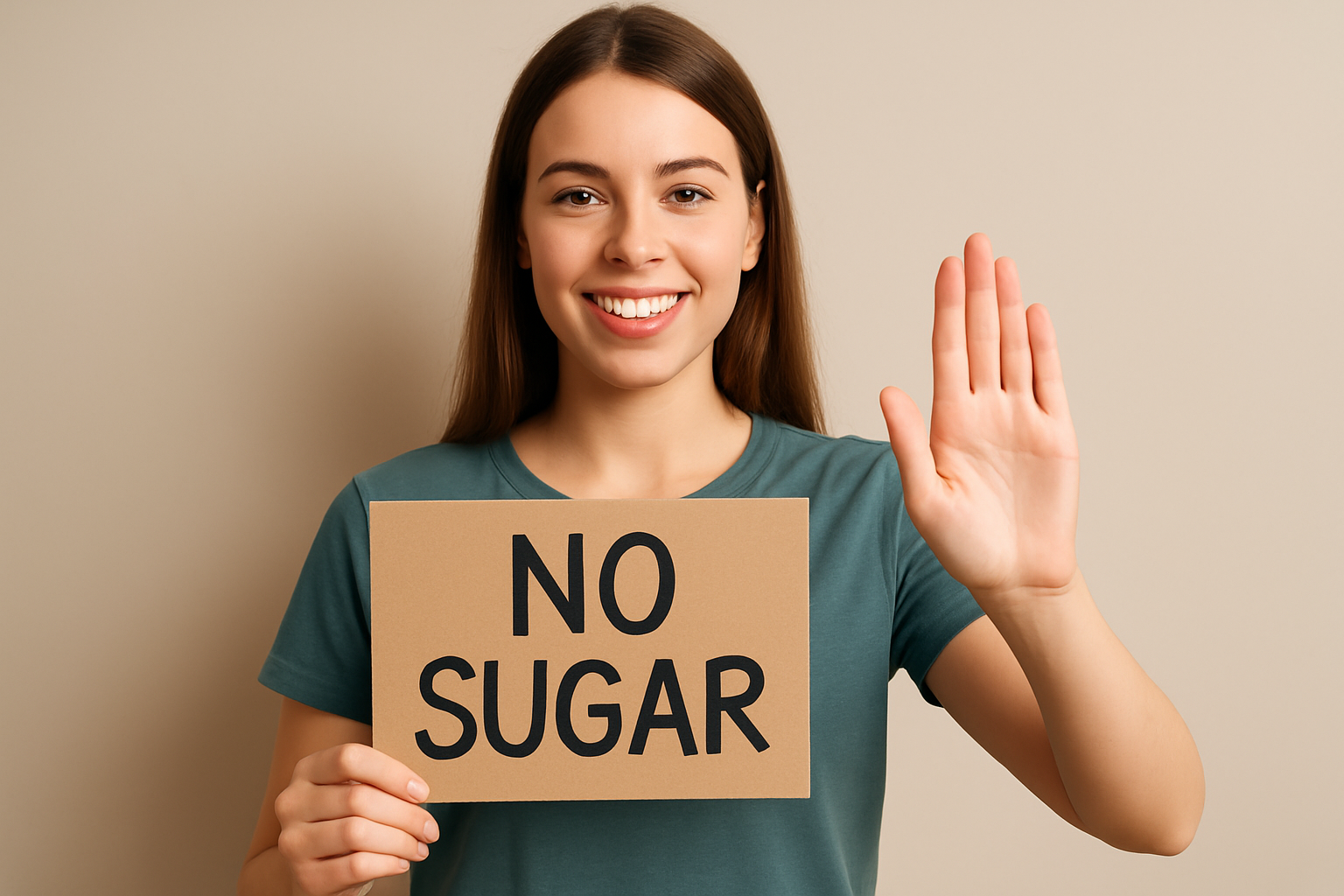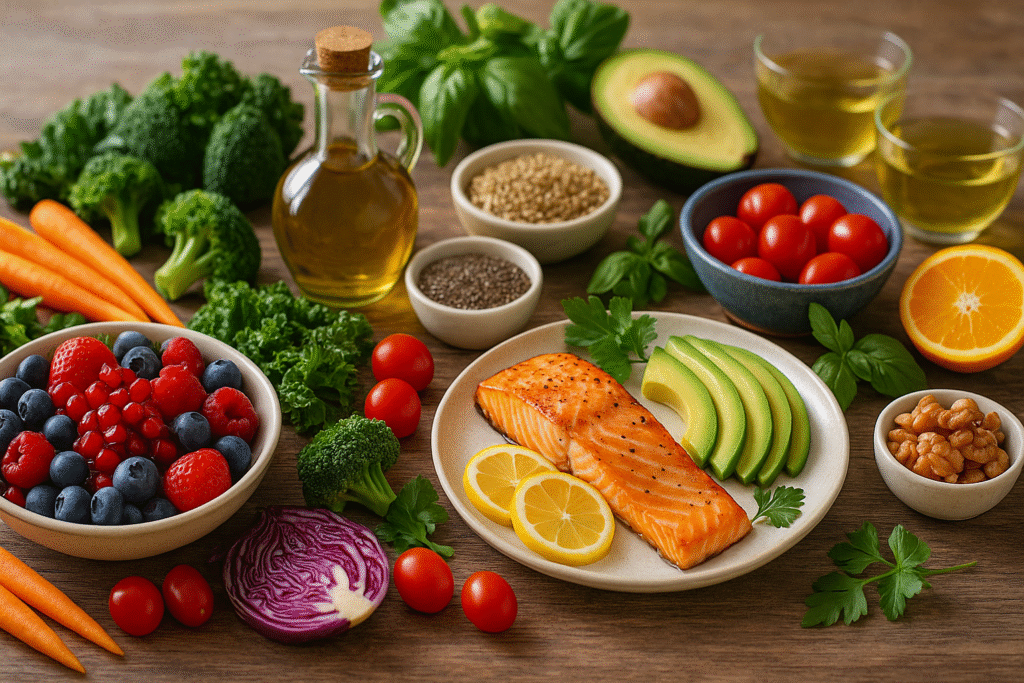Physical Address
304 North Cardinal St.
Dorchester Center, MA 02124
Physical Address
304 North Cardinal St.
Dorchester Center, MA 02124


30 Days Without Suga: Body & Mind Transformation Guide.
Discover what really happens when you quit sugar for 30 days. Boost energy, lose weight, clear your skin, and sharpen your mind with this step-by-step guide to the sugar-free challenge.
Have you ever caught yourself thinking, “Could I really go 30 days without sugar?” If you’re reading this, you’re probably already curious about what a month without sugar could do for your body and mind. Maybe you’re tired of the afternoon crashes, stubborn belly fat, or the endless cravings.
The truth? Quitting sugar for just 30 days can transform your health, your mood, and the way you think about food. This guide will walk you through every step—what to expect, how to overcome cravings, and the real-life benefits you can achieve. Ready for your transformation? Let’s get started.
Read also “Top Anti-Aging Food Habits: Unlock Longevity Through Nutrition“.
Sugar addiction is real. According to Harvard Medical School, sugar causes a dopamine surge in your brain, lighting up pleasure centers just like some recreational drugs [Harvard Health]. It’s not just about willpower; it’s biology.
Why quitting sugar is so tough:
Breaking the cycle is tough—but incredibly rewarding.

Let’s be real—the first week can be rough. You may experience:
How to survive week 1:
Drink plenty of water, eat balanced meals with protein and fiber, and get extra rest. Cravings often peak in the late afternoon—take a walk, call a friend, or journal instead.
Pro Tip: Track your cravings in a notebook. Noticing patterns helps you create healthier routines.
By week two, things start to shift:
You’re learning to enjoy real food again! Celebrate each win (no matter how small) and keep healthy snacks handy.
Real-life moment: Many people report their skin starts to look brighter by week two.
This is where many people notice the sugar fog lifting:
A 2017 study in Nutrients found that lowering sugar improves cognitive function and memory after just a few weeks [Nutrients].
You’ve made it! By now, most people feel:
Some people lose weight; others notice less joint pain or fewer stomach issues. Even if the changes are subtle, your body is thanking you.
Here’s what science says about the benefits of quitting sugar:
Eating less sugar leads to reduced calorie intake and helps manage insulin—your fat-storage hormone [CDC].
High sugar intake is linked to breakouts and dullness. Going sugar-free can lead to clearer, more radiant skin [AHA].
Added sugars raise blood pressure and triglycerides, increasing heart disease risk [Harvard Health].
No more afternoon crashes! You’ll enjoy steady, all-day energy from balanced blood sugar.
Cutting sugar helps lower your risk of type 2 diabetes and metabolic syndrome [NIH].
Less sugar means a happier gut microbiome and improved digestion.
Expert Quote:
“Limiting added sugar is one of the most effective ways to improve your health and longevity.” – Dr. Michael Greger, author of How Not to Die
Sugar isn’t just a physical addiction—it impacts your mood and emotions too.
Why does this happen?
Blood sugar swings affect your neurotransmitters. When you cut sugar, your brain finds a new, steadier balance.
Cravings
Eating Out
Social Pressure
Label Reading
Yes, you can eat fruit! Natural sugars in whole fruit come with fiber and nutrients.
Eat More:
Avoid/Minimize:
Pro Tip:
Craving something sweet? Try herbal teas, fruit, or a spoonful of nut butter.
Breakfast:
Snacks:
Dinner:
After a month sugar-free, you might not want to go back! Here’s what to do:
Even if you don’t stay 100% sugar-free, you now have the power to make better choices and avoid the trap of hidden sugars.
Q: Can I eat fruit during a sugar-free challenge?
A: Yes! Whole fruits are full of fiber, vitamins, and antioxidants.
Q: Will I feel tired if I quit sugar?
A: You may feel tired or foggy in the first week, but energy usually improves after that.
Q: What about natural sweeteners?
A: Stevia and monk fruit are good options, but keep them minimal to reset your palate.
Q: How do I handle headaches from sugar withdrawal?
A: Stay hydrated, eat regular meals, and get plenty of rest.
Q: Should people with diabetes quit sugar?
A: Always talk to your healthcare provider before making major dietary changes.
Quitting sugar for 30 days isn’t always easy, but the transformation is worth it. Imagine waking up energized, with fewer cravings and more confidence in your health. Every step—no matter how small—moves you closer to the best version of yourself.
Are you ready to start your own sugar-free challenge?
Download our free checklist, share your journey with a friend, and let’s make healthy living a lifestyle, not just a challenge.
Read more from Goal for Wellness
Read more blogs from Goal for Wellness